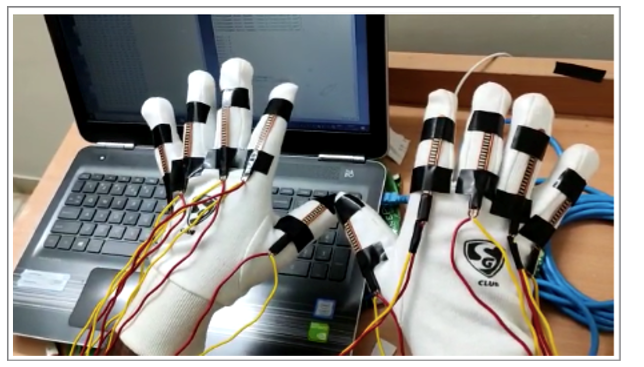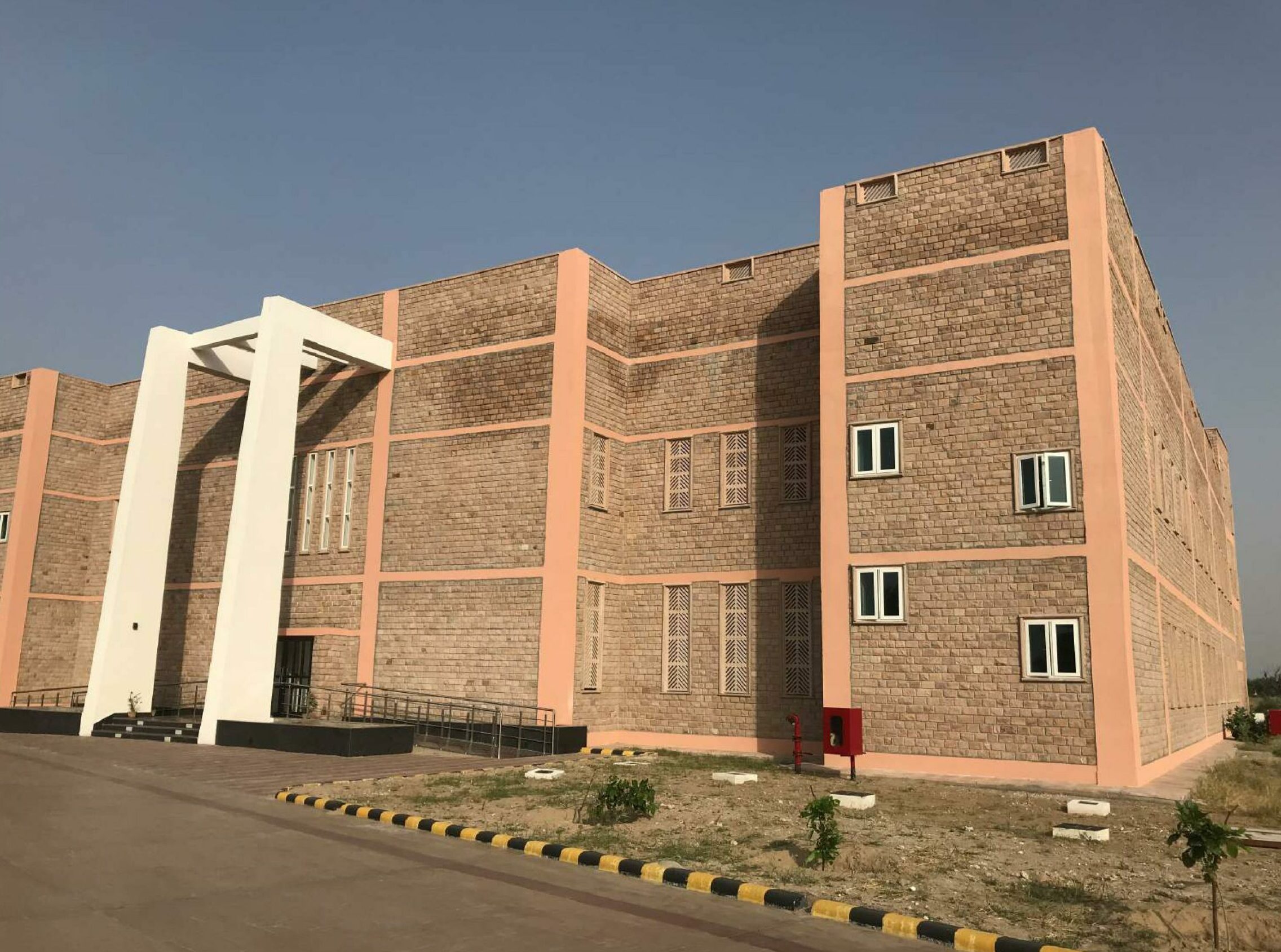IIT Jodhpur and AIIMS Jodhpur develop great Talking Gloves

IIT Jodhpur and AIIMS Jodhpur innovators have developed low cost Talking Gloves for people with speech disability.
The device developed costs less than Rs 5000 and it uses the principles of Artificial Intelligence (AI) and Machine Learning (ML) to automatically generate speech that will be language independent and facilitate the communication between mute people and normal people.


IIT Jodhpur and AIIMS Jodhpur researchers
The team of IIT Jodhpur and AIIMS Jodhpur that undertook the development work comprised Professor Sumit Kalra, Assistant Professor, Department of Computer Science and Engineering, Dr. Arpit Khandelwal from IIT Jodhpur and Dr. Nithin Prakash Nair (SR ENT), Dr. Amit Goyal (Professor and Head, ENT), Dr. Abinav Dixit (Professor, Department of Physiology).
 Patent
Patent
The team from IIT Jodhpur and AIIMS Jodhpur have acquired a patent for this innovation. <Patent no. 380040, Priority date: 05-Sep-2019, Patentee: IITJ & AIIMSJ.
Information about the work done by IIT Jodhpur and AIIMS Jodhpur researchers can be obtained from ‘https://iitj.ac.in/events/index.php?id=494&title=494&event=research>’

Situations
Various preordain situations result in a disease or injury to people and deprive them off with their natural ability to communicate verbally. Sign language is a mode of communication for patients who are unable to speak, say researchers from IIT Jodhpur and AIIMS Jodhpur.
Also read ‘Want a bright career in Indian Air Force? Register for jobs there from 1 December’
In recent years, the technological advancement in the field of electro-medical devices for life support, implantable biomedical devices, and wearable medical devices have successfully provided artificial abilities to afflicted people related to any kind of disability or impairment.

The patented innovation from IIT Jodhpur and AIIMS Jodhpur is a big step towards advancement in this field.

Users of the device only need to learn once and they would be able to verbally communicate in any language with their knowledge. Additionally, the device can be customized to produce a voice similar to the original voice of the patients which makes it appear more natural while using the device, he said.
The device
In the device developed by IIT Jodhpur and AIIMS Jodhpur, electrical signals are generated by a first set of sensors, wearable on a combination of of a thumb, finger(s), and/or a wrist of a first hand of a user.

These electrical signals are produced by the combination of fingers, thumb, hand and wrist movements. Similarly, electrical signals are also generated by the second set of sensors on the other hand, say sources from IIT Jodhpur and AIIMS Jodhpur.
These electrical signals are received at a signal processing unit. The magnitude of the received electrical signals is compared with a plurality of pre-defined combinations of magnitudes stored in a memory by using the signal processing unit, say sources from IIT Jodhpur and AIIMS Jodhpur.

A phonetic is assigned to the received electrical signals based on the comparison. An audio signal is generated by an audio transmitter corresponding to the assigned phonetic and based on trained data associated with vocal characteristics stored in a machine learning unit, say sources from IIT Jodhpur and AIIMS Jodhpur.
The generation of audio signals according to the phonetics having combination of vowels and consonants leads to the generation of speech and enables the mute people to audibly communicate with others.
The speech synthesis technique of the present subject matter uses phonetics, and therefore the speech generation is independent of any language.

The developed product by team from IIT Jodhpur and AIIMS Jodhpur will be commercialized through a startup incubated by IIT Jodhpur.






